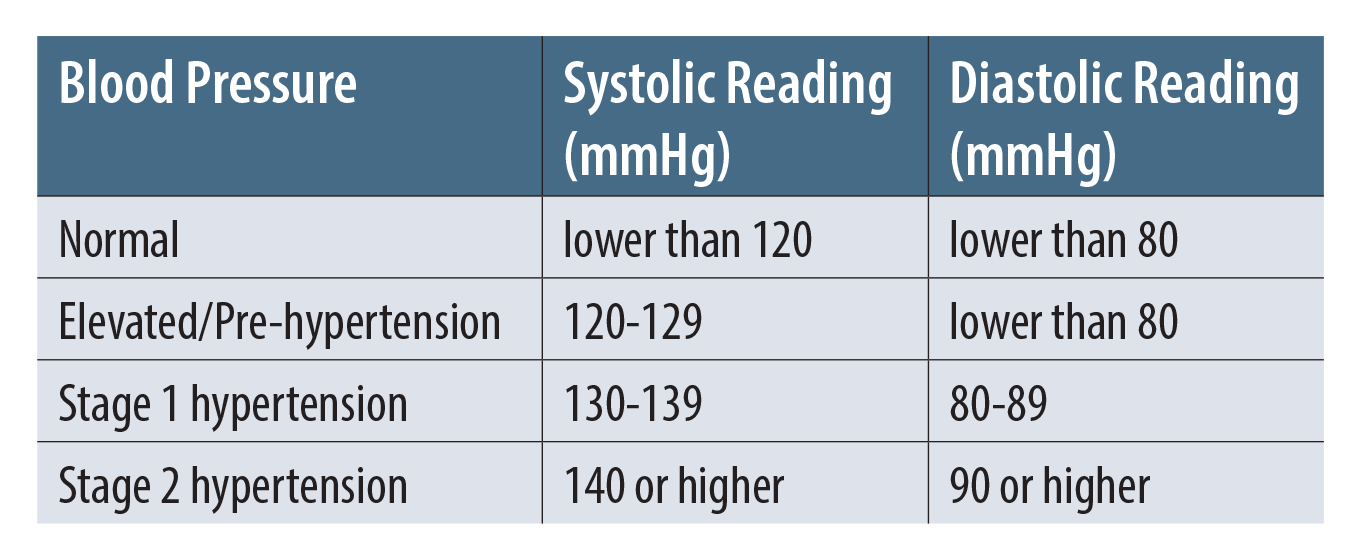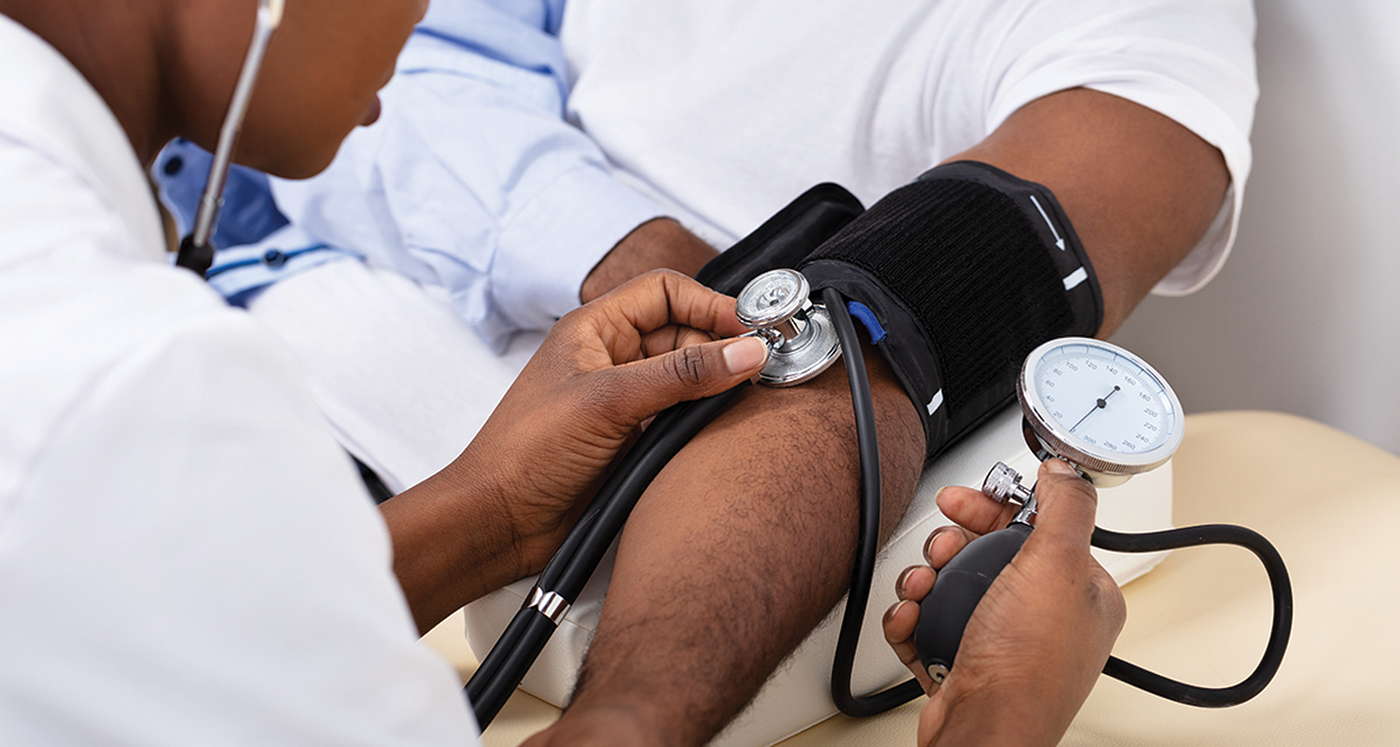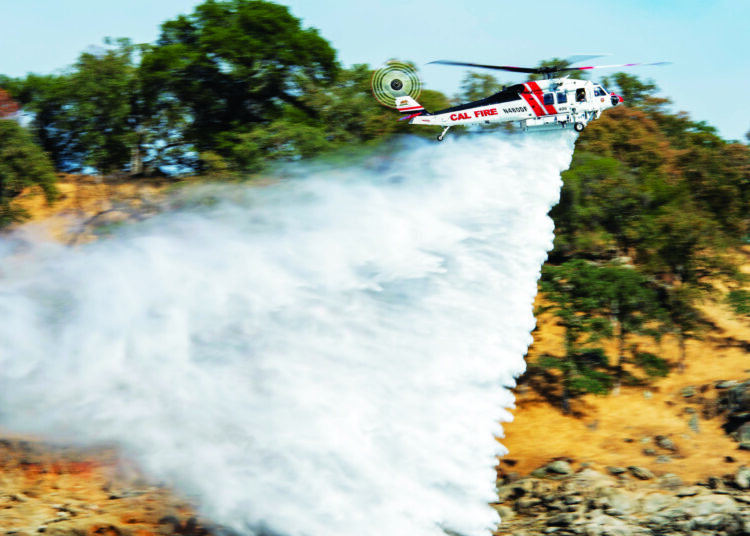
By Dr. Penny Giovanetti, FAA Medical Specialties Division director
Hypertension (high blood pressure) is one of the most common conditions faced by pilots seeking medical certification.
Blood pressure is the measurement of the force of the blood pushing against the walls of the arteries as the heart pumps blood. The measurement is presented as two numbers: the systolic (top number) over the diastolic (bottom number) in millimeters of mercury (mmHg).
The American College of Cardiology’s published hypertension guidelines are as follows:

A doctor should not diagnose hypertension based on a single reading or at one point in time. If your blood pressure is elevated on an examination, your doctor may schedule follow up readings to determine if you have hypertension or not. Your Aviation Medical Examiner (AME) is not required to follow up on your elevated blood pressure unless the systolic reading is higher than 155 or the diastolic reading is higher than 95 on the FAA medical examination. However, he or she may recommend that you follow up with your personal physician for an elevated blood pressure even if it is within FAA limits.
Frequently Asked Questions
I have hypertension. What should I do?
You should determine an appropriate treatment plan with your physician. Uncontrolled hypertension significantly increases your risk of stroke, heart attack, kidney failure, and other vascular diseases. Remember though, that the FAA evaluation is only to determine if you can safely fly for the duration of your medical. While values under 155/95 are acceptable for FAA medical certification, you should not think that these are acceptable for long-term health. If you have elevated blood pressure levels, do yourself a favor and get treated, even if you still qualify for a medical without medications. Certifying a pilot with well-treated hypertension is very straightforward. While we do certify individuals after a heart attack or stroke, it is much more involved. Why risk this or, more importantly, the possibility of permanent impairment?
Can I get treatment that is acceptable to the FAA?
Lifestyle changes such as weight loss, exercise, and a healthy diet are highly encouraged whether you have hypertension or not. Nearly all anti-hypertensive medications are acceptable to the FAA. Combinations of up to three medication components may be considered under the CACI program. The one exception is the class of drugs known as “centrally acting,” e.g., Catapres (clonidine), but this class is generally avoided in current practice. More than three drugs (not pills, as one pill may contain 2 or 3 drugs) will require a special issuance.
How long will it take to get my medical certificate?
If you meet all the criteria listed in the Conditions AMEs Can Issue (CACI) worksheet, your AME can issue a medical certificate at the time of your exam. You can view that worksheet at bit.ly/CACIWorksheets or simply Google “FAA CACI Hypertension.” Make sure that you bring the current, detailed progress note and have been stable on your medications at least seven days. Otherwise, issuance of your medical could be delayed. If you have any questions, contact your AME or Regional Flight Surgeon.

Dr. Penny Giovanetti, D.O., received a bachelor’s degree from Stanford, a master’s in Environmental Health and Preventive Medicine from the University of Iowa, and a doctorate from Des Moines University. She completed a 27-year career as an Air Force flight surgeon. She is board certified in aerospace medicine, occupational medicine, and physical medicine/rehabilitation. She is also a Fellow of the Aerospace Medical Association and a private pilot.






